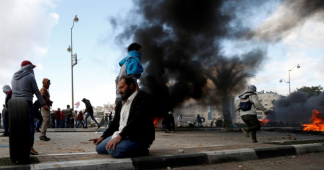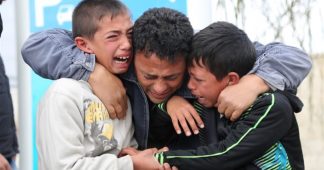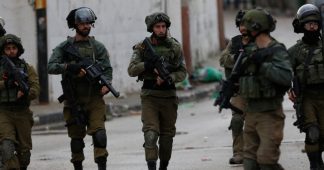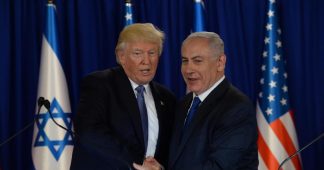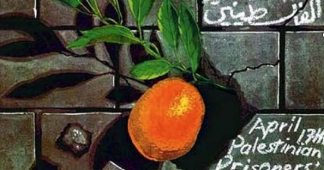By Mazin Qumsiyeh
Decades of Zionist colonialism transformed the Palestinian people from among the most economically and educationally advanced in Western Asia to among its most dependent and desperate. Seven million of us are refugees or displaced people. Many thousands have been killed. This begs the question: how can a people in such a position resist and overcome? In 2010, I published a book on the subject.[1] It focused on the victories and accomplished of Palestinian resistance, and projected a very optimistic note. The events of the past five years—not least among them, the destruction and disarray in the Arab world; the disastrous impotence and complicity of the United Nations in Syria, Yemen, and elsewhere; the ascendance of belligerent populism around the world, including the United States—have cast a heavy shadow on this optimism. But Palestinians under occupation do not have the luxury of despair.
Resistance to colonialism never develops in a linear fashion. Any struggle goes through peaks and troughs, and suffers regressions even as it advances. Palestinians call such escalations of resistance intifada, or uprisings. In South Africa under apartheid, there were perhaps 14 or 15 such uprisings before the system collapsed. Focused on the short term, many Palestinians and international observers focus on the symptoms of this conflict and thus feel despondent. Others look at the situation and see that it is near boiling point. In my view, one has to take a longer perspective.
The Palestinian struggle is today at a low-point. The Oslo process set in motion in 1993 has given Israel much, including international recognition, regional economic integration, a subservient Palestinian Authority which acts as a sub-contractor to the occupation, and, most importantly, time and diplomatic space to dramatically expand its colonial presence in the OPT.
Even now, a full quarter-century after the “peace process” began, and notwithstanding its manifest and acknowledged bankruptcy, international powers use it as a pretext to avoid action. The European states condemn Israel’s occupation in words while enabling it in practice. As for the United States, President Obama dropped 26,000 bombs in 2016 on seven different countries,[2] and we do not expect better from President Trump.
Nor do Arab leaders inspire hope: Palestinian President Abbas believes in talking for the sake of talking, while the King of Saudi Arabia is preoccupied with bombing hospitals and schools in Yemen.
In other words, the conditions for revolution are in place:
1) The Palestinian factional leaderships are disconnected from the people’s needs and thoughts; enjoy little popular legitimacy, and attract great and growing popular resentment.
2) Most people have given up on political structures and international diplomacy; Palestinians today realize that the so-called “peace process” is an industry of empty talk and serious profit for elites.
3) The colonizer-occupier is so confident that the natives are under “control” that it has become complacent and reckless, killing unarmed demonstrators and demolishing homes as collective punishment. At the time of writing, Israel just decided to deport from Jerusalem 12 family members of a Palestinian who killed four soldiers while they were illegally occupying East Jerusalem (under international law, this constitute legitimate resistance). Such gratuitous provocations can accelerate the arrival of uprisings.
4) The international community does not attach importance or urgency to Palestinian suffering, and, driven by its own interests, has become complicit in the crime.
These conditions were present before every one of the uprisings in Palestine.[3] For example, in 1936 the Palestinian political scene was, as it is today, divided into multiple competing factions (most of which—like Hizb Al-Istiqlal, Hizb Al-Difa’, Al-Hizb Al-Arabi, Mu’tamar Al-Shabab, Hizb Al-Islah, and Hizb Al-Kutal Al-Wataniya—did not long survive, and have been forgotten). In the years leading up to the 1936 revolt, the British authorities and Zionist movement felt secure in their control, having suppressed the 1929 uprising and integrated many Palestinian elites into subordinate positions in the Mandatory administration. (The 1929 uprising itself came in a context of widespread collaboration by Palestinian institutions—including the Palestinian police—with the Mandatory authorities.) By 1936, the White Paper of 1930[4] was already fading into memory, and the years 1920 to 1936 had seen a near doubling of the colonial settler Jewish population. The British government and underground Jewish terror organizations like the Haganah and Irgun were straining to transform the multi-cultural and multi-religious Palestine into Eretz Yisrael, as the prelude to a Jewish state. Analogous conditions prevailed before the outbreaks of the first and second intifadas in 1987 and 2000, respectively, and we see them again today. Lack of trust in Palestinian authorities; a divided and complicit leadership; an ever-more arrogant and flagrantly repressive occupation, and increasing Palestinian isolation—these conditions are always cited by skeptics as factors preventing an uprising, but history shows that they in fact they promote it.
It is normal to experience lulls between uprisings. This partly reflects the generational character of waves of resistance. Palestinians have gone through 14 uprisings in 130 years—a rate of about one a decade. The next one is overdue. Let us hope it will be the last. Palestine is the world’s sole remaining unresolved case of colonialism, and it will most likely be settled in the same manner as it has been in more than 140 other countries: by sharing the land, and agreeing to coexist. Until this freedom and equality is achieved, Palestinians will continue to resist.
________________________________
[1] Mazin B. Qumsiyeh, Popular Resistance in Palestine: A History of Hope and Empowerment (London: Pluto Press, 2010).
[2] Micah Zenko, “How Many Bombs Did the United States Drop in 2016?,” Council on Foreign Relations (5 January 2017, http://tinyurl.com/hkj3swg.
[3] See Qumsiyeh, Popular Resistance.
[4] The 1930 Passfield White Paper was the result of British inquiry ordered in the wake of the 1929 revolt. It recommended restricting Jewish immigration into Palestine.
